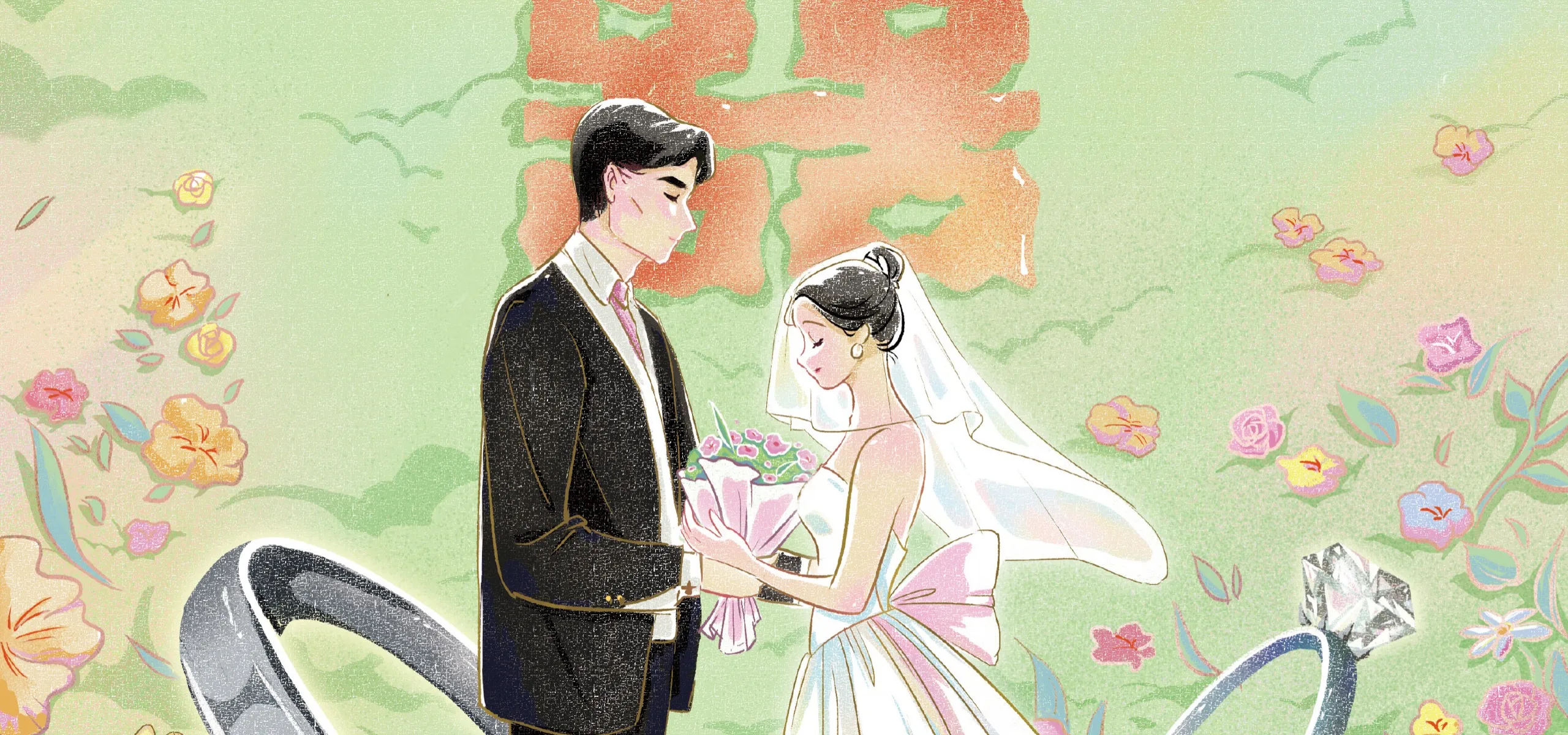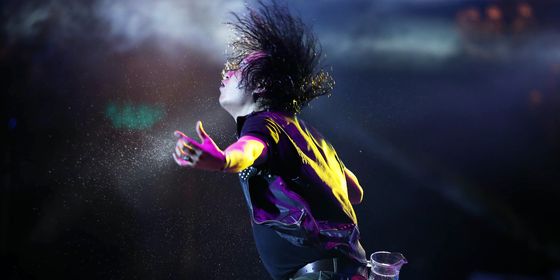Celebration of love or social obligation? Learn the language of Chinese weddings, from invitations to the ceremony itself
A young woman surnamed Shi from Wuzhou, Guangxi, may have been one of the busiest people in China during the National Day holiday this October: She received 21 wedding invitations from colleagues, friends, and former classmates, all scheduled during the seven-day break. On her busiest day, she attended five of them.
Hopping between venues on a tight schedule might not have been the most stressful part of Shi’s holiday. She would have to show up at each occasion bearing 份子钱 (fènziqián) or 礼金 (lǐjīn), cash gifts wrapped in 红包 (hóngbāo, “red envelopes”) that were originally intended to help the family cover the costs of the big event, but are now often given as part of well-wishing or due to social pressure—in many parts of China, the bigger the cash amount the better.
According to Chinese media reports, for each hongbao (or more likely, mobile hongbao) Shi prepared for each wedding, she had to shell out 300 to 800 yuan, based on her closeness with the couple. The amount can reach up to thousands in big cities like Beijing and Shanghai. It’s little wonder that major holidays where most people visit their hometown and attend weddings are dreaded by cash-strapped young people.
Weddings aren’t just stressful for guests. A user on Q&A platform Zhihu once shared the itinerary of her big day, a typical one in China nowadays: getting up at the crack of dawn for makeup and hair, elaborate photo shoots with costumes (often taking place weeks before the wedding, and sometimes in exotic venues), “door games” (challenges the bridesmaids set up for the groom and groomsmen when they pick up the bride), rituals to honor the couples’ parents at each of their homes, more photos (now with the parents), greeting the guests, the actual ceremony, going around every table to drink toasts with the guests, and having no time to eat. Oh, and there are several outfit changes between these events.
Some young people are trying to rebel against this tradition by holding destination weddings or minimalist ceremonies. But most still honor their parents’ wishes for a “sense of ritual (仪式感 yíshìgǎn)” by holding a big blowout to impress their entire extended family and social network. According to MarryMemo, a major Chinese wedding service platform, an average wedding in 2021 cost around 253,000 yuan, an increase of 3.8 times compared to five years ago, and weddings during this year’s National Day holiday took an average of 7.6 months to prepare.
Talk Your Way Through a Chinese Wedding is a story from our issue, “Promised Land.” To read the entire issue, become a subscriber and receive the full magazine.














